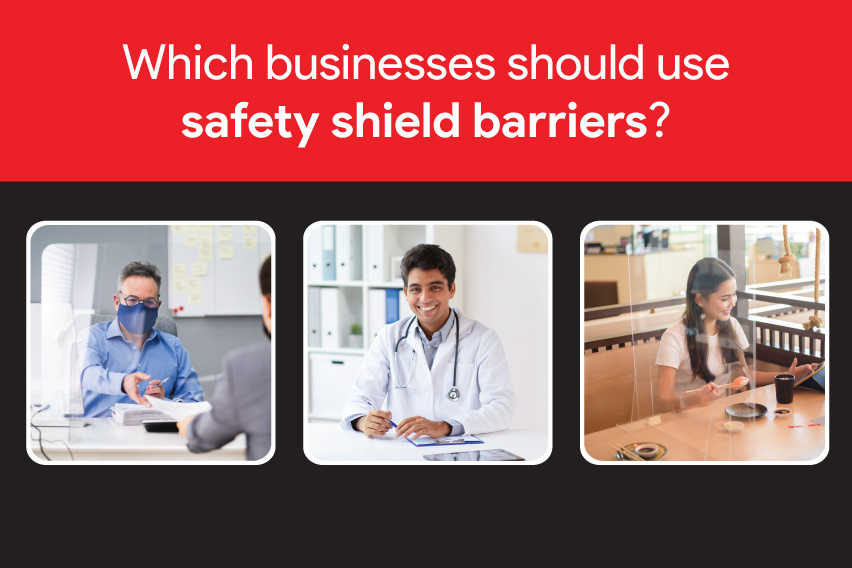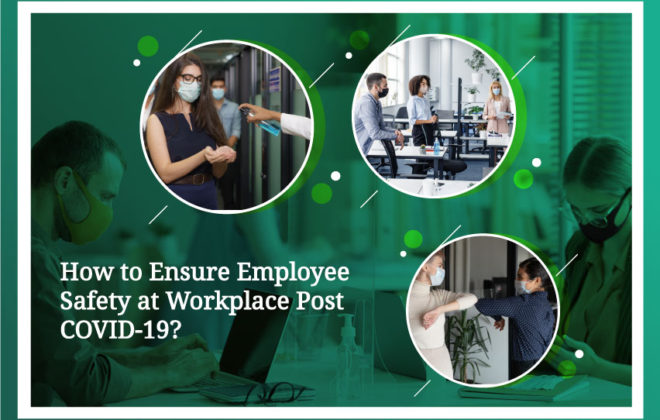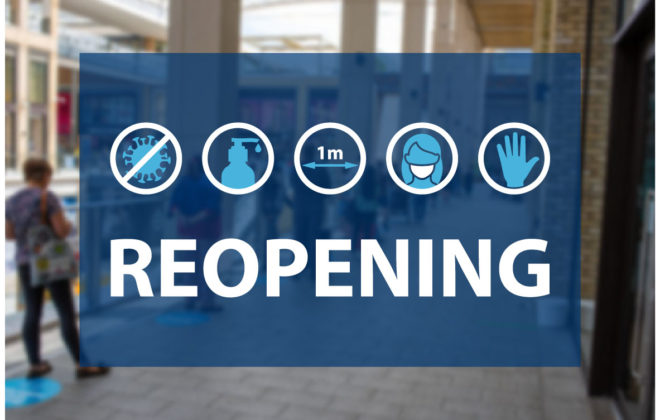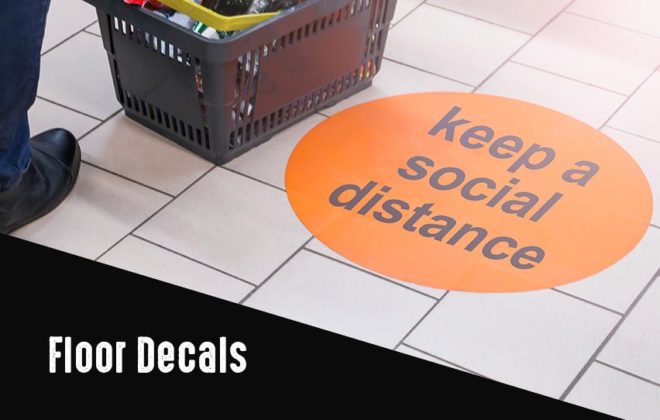Which businesses should use safety shield barriers?
COVID-19 continues to affect lives and livelihoods. It’s changed the way we do business with people. People expect businesses to follow regulations and consider the health of their customers and workers. After all, if a business can’t take care of the health of its workers, how can it expect to gain the trust of its customers?
Health safety equipment such as masks, face shields, and portable hand sanitizer stations are mandatory for every location. But, there are other pieces of safety equipment that are recognized as essential if not mandatory. Full size safety shield barriers, sneeze guards and PPE kits are among these essentials. While PPE kits are reserved for healthcare sectors, the other two items can be easily implemented at locations.
The benefits of fitting safety shield barriers are obvious, they protect customers and counter-facing staff from transmission. These barriers are also easy to clean, remove and mount on surfaces. They come in three types, plastic, acrylic glass, and glass. Each type is transparent and lets you interact. The difference remains in quality.
So which business should use them? The general answer would be every business, which has people meeting each other at a regular basis. But does your industry come under that? Let’s take a look.
1. Hospitals
Once inside, hospitals are the most sanitized places to be in, you couldn’t ask for a safer place. But, it can be said without question, that hospitals need sneeze guards for counters and desks. That’s where interactions between patients and staff happen. Which leads to a high chance of transmission, if proper safety precautions are not taken.
2. Private Clinics
Dentists, orthodontist, dermatologists, and dozens of other medical professionals with a private practice need one. Sneeze shield for reception counters is crucial, since doctors will be engaging with clients for consultation. Furthermore, unlike hospitals, private clinics don’ t have spacious waiting rooms. So, for the safety of their patients, along with staggered appointments, clinics need to use utilize portable room dividers made from acrylic glass to make sure that patients in the waiting room are isolated from each other. Making such arrangements also reassures patients that you have their best interests at heart.
3. Retail Stores
If your store is located inside a mall, then you need not take extra measures, since the malls do all the screening for you, ensure that all barriers and signage to encourage social distancing are in place, and usually provide covid 19 safety supplies. But most retail stores that are still kicking, have their own location. So when and where should they utilize acrylic safety barriers? The answer is during opening times and at entrances, cash counters and exits. These should be supported signage to encourage social distancing.
4. Restaurants
Safety shields and sneeze shields are part of the new normal for the hospitality industry. After all restaurants are meant for dinning and socializing. So restaurants, coffee shops and cafes need to implement every possible safety solution for customers. After all, chances of transmission are highest at dinning places, due to which the highest safety standards are expected. Along sneeze shield at all counters, either a hanging sneeze guard or a standing sneeze guard needs to place between tables. Restaurants will need to adopt the blinders method, which is isolating each table by putting up barriers around it.
5. Office Reception
The reception and lobby at offices, will see a surge in foot movement. Since vendors, clients and traders will need a place to wait. Not just that, if essential employees are still working at your office, expect an increased footfall from food delivery personnel. So, for offices a high transmission zone would restricted to the reception and lobby. Meeting rooms are another high risk area where shields would be required, but this expense can be spared if meetings are held via Zoom, Google Meet or Microsoft Teams. The last place would be the supervisor’s office, which is often that case for manufacturing plants. Since troubleshooting must often be done on-site.
6. Banks
Despite digital payment picking up, the majority still prefers making at least large deposits at the bank. So people are still going queue up to make their payments, and bank tellers will still need to find product themselves through sneeze shields. A mask will only protect their mouth and nose, but not their eyes and ears. Face shields are an option, but wearing that for hours gets very uncomfortable. This makes counter-top sneeze guards the right compromise between comfort and safety. Standing safety shields will also be need to placed at ATMs, and at cheque deposit counters for customers.




